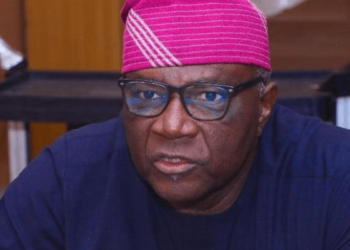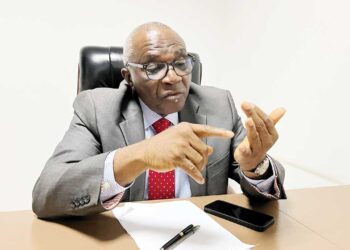The Federal Government has set up a subcommittee to thoroughly evaluate the potential economic impact of the recent tariff measures announced by the United States Government, particularly considering the indirect effects on Nigeria’s fiscal position and global oil market developments.
This was disclosed in a press statement on Friday, signed by Mohammed Manga, the Director of Information and Public Relations at the Federal Ministry of Finance.
According to the statement, the Economic Management Team (EMT), chaired by the Minister of Finance and Coordinating Minister of the Economy, Mr Wale Edun, convened an urgent meeting earlier this week with key ministries and agencies.
The meeting focused explicitly on the fiscal and broader economic implications arising from recent US trade actions.
“Of particular focus was the recent announcements of tariff measures by the United States Government and their potential impact on Nigeria’s economy. While crude oil—Nigeria’s major export—has not been directly targeted, the EMT noted the accompanying fall in the international oil price,” the statement said.
Composition and mandate of the subcommittee
To promote evidence-based decision-making, the EMT set up a subcommittee responsible for conducting an in-depth review of the economic consequences of both the US tariff measures and recent global commodity price fluctuations.
According to the statement, the subcommittee comprises representatives from the Federal Ministry of Finance, the Ministry of Budget and Economic Planning—including the Budget Office of the Federation—as well as the Central Bank of Nigeria (CBN).
“The subcommittee also held its inaugural meeting this week and will ensure it presents its findings to the full EMT without delay,” the statement added.
- The move signals the government’s proactive stance in safeguarding Nigeria’s economy against external shocks, especially given the volatility of global markets following recent US tariff implementations.
- JP Morgan, a leading global financial institution, recently warned that Nigeria could face significant foreign portfolio investment outflows and a weakening of the naira amid sustained low oil prices triggered by global economic uncertainty.
The bank specifically highlighted the adverse impact of US tariff announcements, noting that investor confidence in Nigeria had been shaken, with the possibility of the naira depreciating significantly if oil prices remain below the country’s fiscal breakeven of around $60 per barrel.
What you should know
Early last year, President Bola Tinubu established an Economic Management Team Emergency Taskforce (EET), tasked with creating and executing a unified emergency economic strategy.
- The emergency economic task force includes the finance minister, Wale Edun, CBN governor Yemi Cardoso, the Minister of Power Adebayo Adelabu, four state governors, and other principal figures from both public and private sectors.
- The government’s establishment of this subcommittee affirms a recognition of these market realities and signals an intention to closely monitor and respond decisively to emerging threats. The findings of the subcommittee are expected to guide the EMT in shaping Nigeria’s economic policies over the short to medium term, particularly in mitigating risks associated with ongoing international trade tensions and declining commodity prices.


















